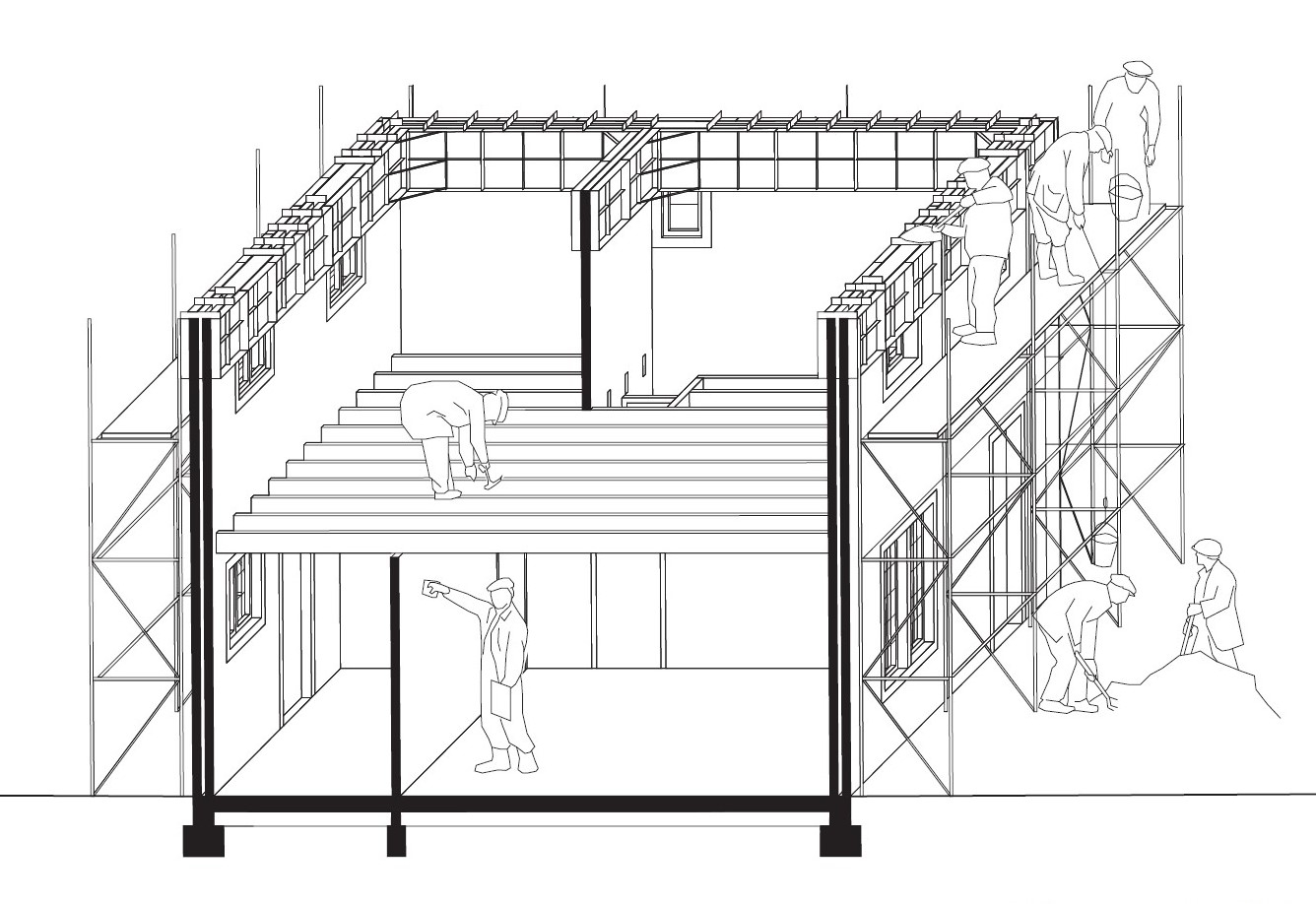
Changing scale implies a change to the economy of housing. It “tilts the scales,” raising questions of what should be of value. This talk will explore how changing scale has manipulated economic reality, through an investigation into the British building firm John Laing & Son in the early 20th century. Laing rose to prominence as a builder of garden cities, including the Raymond Unwin-designed Gretna Township in 1916. Garden cities may have been spatially isolated and smaller than existing cities, but they scaled up commissions and demanded greater collaboration between specialists within the building industry. Constructing entire towns from scratch in remote areas meant creating new local economies: housing workers onsite and scientifically managing their consumption and production. Laing developed a system of concrete construction which redefined the need for particular skills and set new rhythms of work. As a proprietary system marketed to council housing providers, this changed how architects specified what to build. The firm also became a developer in order to maintain its massive workforce during an economic slump: building houses, shopping streets and even factories for speculative sale, and leveraging low-interest loans to working-class homebuyers to create its own effective demand. Laing’s in-house architectural team was arguably responsible for designing the most houses in London’s history. Large projects redefined the economy of building, but in turn, this economy demanded more large projects, within a circular logic of bigness.
The Berlage Sessions is a thematic seven-part seminar series focusing on scholarly research and critical approaches to the history and theory of architecture and urban design. This spring’s series, entitled “In and Out of Scale,” examines select ideas and projects that reconsider the scalar relationships of the built environment, from radio transmission and television broadcasting to the model and the chair. Organized from the large to small scale, topics will include the remote transmission of information in the Cold War; televangelical spaces—worship sites, churches, hospitals, university campuses—that were either retrofitted to accommodate television or designed explicitly for its technology between the late 1950s and the early 1980s; the various interpretations and misinterpretations of “artificial land” in postwar Japan; how the construction of new garden cities not only scaled up building commissions but also created new local economies; on the staging of miniature landscapes for large-scale photographs; how scale models were used as descriptive instruments in nineteenth-century London; and a consideration of how the Indian planter’s chair affirms past influences while also sensitively converses with the present. Speakers will include Rachel Julia Engler, Jesse Honsa, Casey Mack, Sarita Sundar, Alfredo Thiermann, Matthew Wells, and Edwin Zwakman.
People
Jesse Honsa is an architect and researcher based in Brussels. He recently completed his PhD dissertation, “Housing Economies of Scale: An Architectural Assessment of Three Historic Case Studies in London,” promoted by Martino Tattara and co-promoted by Sven Sterken at KU Leuven. Jesse has around ten years of experience in architectural practice, focusing mainly on large-scale housing and urban design with Aardvarchitecture in New York City, Rutz Architecten and AGPS architecture in Zürich, DB Architects in Istanbul and Ooze Architects in Rotterdam, where he has also served as a “financial liaison” to multilateral development banks. He has presented work at the Istanbul Design Biennial, the World Islamic Economic Forum, the Venice Architecture Biennale (2021) with Ooze Architects, and is currently collaborating with Dogma and CityTools on an exhibition at Les Halles Saint-Géry in Brussels. Jesse has studied at the Rhode Island School of Design (RISD), the Berlage Center (Generation 26), and KU Leuven. He is currently a postdoctoral researcher in the Department of Building Physics and Sustainable Design at KU Leuven, where he is developing financial and organisational strategies to scale up climactic housing renovations in Flanders.